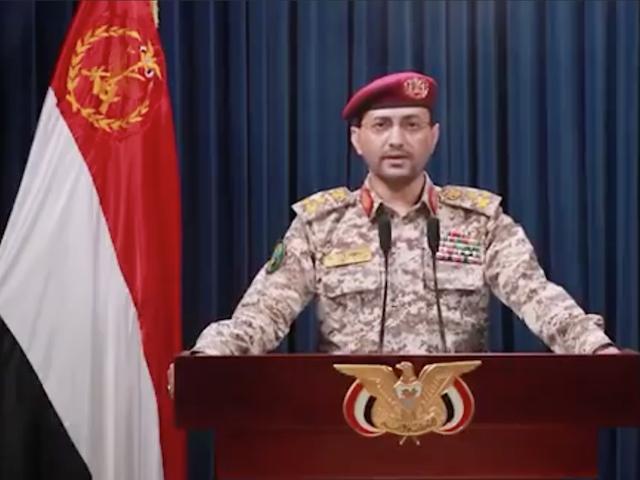The Houthi rebel group in Yemen has claimed responsibility for a hypersonic missile attack on central Israel, targeting the heart of the nation. Contrary to earlier reports which claimed the target was Israel's primary international airport, Ben Gurion, the missile was aimed directly at Jaffa, a historic and densely populated area near Tel Aviv, according to Yahya Saria, the spokesman for the military wing of the Houthis. Jaffa, the area of the biblical Yafo as it is pronounced in Hebrew, is a mixed city with Arabs making up a majority of the residents.
According to Saria, the missile was reportedly capable of traveling a staggering 2,048 kilometers in just 11.5 minutes, however this has not be confirmed or debinked by Israel or other countries who ight have tracked it on their radar. While possible, as Iran has been claiming to have this technology for over a year, analysts have said the missile was likely of the ballistic nature.
This attack marks the beginning of a new, dangerous phase in the Houthis' ongoing hostilities against Israel, described by Saria as "part of the fifth stage of the escalation." The timing and precision of this attack underscore the group's growing capability and audacity, as they aim to strike at Israel's civilian population and critical infrastructure.
The Houthi Terrorist Group in Western Yemen has released a Statement regarding today’s Ballistic Missile Attack on Central Israel, which they claim Responsibility for saying it was carried out using a “New Hypersonic Ballistic Missile” which traveled over 2,000 Kilometers in only… pic.twitter.com/HDKogBFMCF
— OSINTdefender (@sentdefender) September 15, 2024
Sirens and Chaos in Gush Dan
At 6:35 a.m. on Sunday, the peace of the early morning in Gush Dan was shattered by the wail of sirens, signaling the incoming threat. This marked the first time in four months that alarms blared across central Israel, reigniting the palpable fear among residents who have grown accustomed to sporadic but intense bursts of conflict. Eyewitnesses reported hearing explosions, as fragments of the missile rained down, causing fires and widespread alarm.
Missile Debris Sparks Fires and Panic
The debris from the intercepted missile ignited a fire in an open area in Moshav Kfar Daniel, a rural community that found itself suddenly thrust into the crosshairs of international conflict. Shrapnel was discovered scattered across a broad swath of central Israel, from Gezer to Rehovot, and even near the Paatei Modi'in train station—a vital transport hub for thousands of commuters. In a particularly unnerving scene, a fragment from the missile or the interceptor landed on an escalator near a major shopping center on the outskirts of Modi’in, perilously close to the headquarters of The Judean.
God damn that Iran technology is incredible, a missile launched from Yemen managed to fly at “hypersonic” speed at Israel but slow down enough to not cause any blast damage and just cause a conveyor belt fire at a quarry 😱😱😱
— Aurora Intel (@AuroraIntel) September 15, 2024
Oh wait… https://t.co/Ri6sUJYpoY
Failed Interception Raises Concerns
Initial reports suggest that Israel's Arrow 3 missile defense system failed to neutralize the hypersonic missile, allowing it to penetrate Israeli airspace. Fortunately, the Arrow 2 system succeeded in destroying the projectile before it could reach its intended target—Ben Gurion Airport, Israel's main gateway to the world. This near-miss has raised serious questions about the effectiveness of Israel's multi-layered defense systems against newer, faster, and more sophisticated threats.
Casualties and Continued Normalcy Amid Crisis
Magen David Adom emergency services reported that five people sustained light injuries while rushing to protected areas. They were treated and transported to nearby hospitals. Remarkably, the Education Ministry announced that there would be no changes to Home Front Command directives, and schools in the entire central region would operate as usual—a testament to the resilience and determination of Israeli society in the face of continuous threats.
Escalation Signals a New Era of Threats
The Houthis’ brazen missile attack is not just a symbolic strike; it represents a significant escalation in the regional dynamics of the Middle East. By demonstrating the ability to strike deep into Israeli territory with advanced weaponry, the Houthis are signaling their intent to escalate their campaign against Israel, likely fueled by their Iranian backers who have long sought to expand their influence and capabilities against Israel through proxy forces.
🇾🇪🇮🇱HOUTHIS CLAIM HYPERSONIC MISSILE WAS FIRED AT ISRAEL
— Mario Nawfal (@MarioNawfal) September 15, 2024
"The missile force in the Yemeni Armed Forces carried out a specific military operation of which it targeted a military target of the Israeli enemy in the Yafa [Tel Aviv] area in occupied Palestine.
The operation was… pic.twitter.com/sar84xkpSh
This incident underscores the volatile security situation in the region and highlights the need for continued vigilance and technological advancement in defense systems. As Israel grapples with these emerging threats, the attack serves as a stark reminder that even the most advanced defenses are not infallible, and the risk to civilian populations remains ever-present.
A Call to Action
This attack serves as a wake-up call for Israel and its allies. It is imperative that the international community recognizes the growing danger posed by state and non-state actors equipped with cutting-edge technology capable of circumventing existing defense measures. The time for complacency is over; the Houthis have shown that they are willing and able to take the fight directly to the heart of Israel, and Israel must respond with both strength and strategy to ensure the safety and security of its people.


